
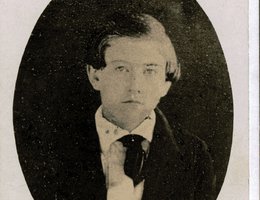
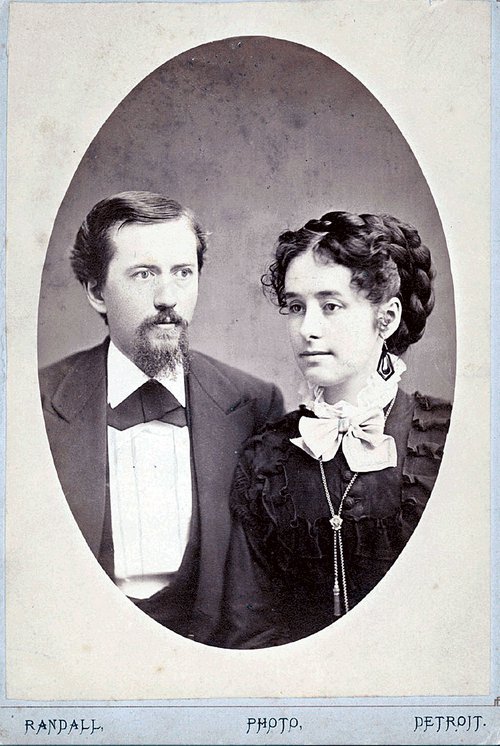
Notable Nebraskan, Julius Sterling Morton was born April 22, 1832 in Adams, New York.
Morton, along with Robert Furnas, was the co-founder of Arbor Day.
At a young age, Morton knew he loved newspapers and nature. He pursued these passions throughout his life and today is known for both.
After finishing school at the University of Michigan, Morton married his
school sweetheart, Caroline ("Carrie") Joy French in 1854. They left
for the Nebraska Territory on the day of their marriage.
Morton and his wife, Carrie, settled in Nebraska City where he became the editor of the Nebraska News. His life-long interest in writing and publishing had begun in his grandfather’s newspaper office in Michigan.
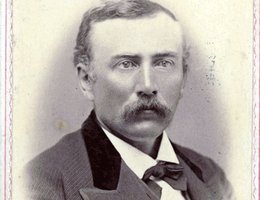
Morton was appointed Nebraska’s territorial Secretary of State from 1858-1861 and was also the acting territorial governor from 1858-1859.
In addition to being a pioneer statesman in the Nebraska Territory, Morton also pioneered in agriculture.
Living in Nebraska City, Morton carefully watched the growth of the Nebraska Territory through all its ups and downs. He did not believe Nebraska was the “Great American Desert”, but quite the opposite. He believed in our state’s agriculture and the honorable work of farmers.
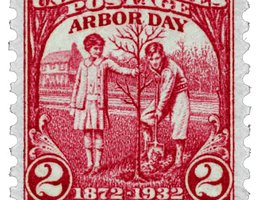
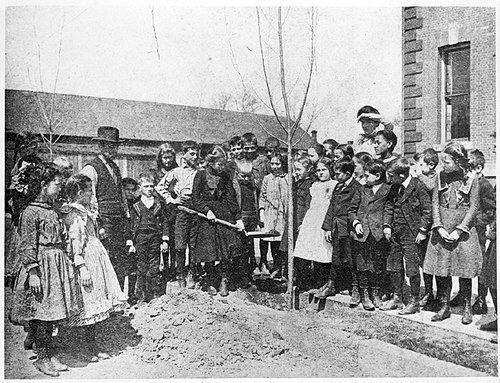 In 1872 the Nebraska State Board of Agriculture adopted Morton’s resolution to create Arbor Day, a day set aside to plant trees. Prizes were offered to counties and individuals for planting properly the largest number of trees on that day. It was estimated that more than one million trees were planted in Nebraska on the first Arbor Day.
In 1872 the Nebraska State Board of Agriculture adopted Morton’s resolution to create Arbor Day, a day set aside to plant trees. Prizes were offered to counties and individuals for planting properly the largest number of trees on that day. It was estimated that more than one million trees were planted in Nebraska on the first Arbor Day.Nebraska celebrates Arbor Day on the last Friday of April. All 50 states celebrate this holiday, although the dates may vary to match each local climate’s best time to plant trees.
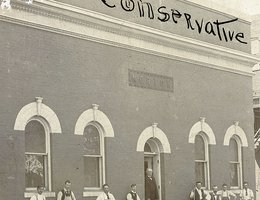
Morton died in 1902 at his son’s home in Illinois. J. Sterling Morton was inducted into the Nebraska Hall of Fame in 1975-76.
J. Sterling Morton is in the Nebraska Hall of Fame.
Learn more about him and the other members.
Discussion Questions:
What makes someone an outstanding citizen?
What is the difference between a good citizen and an outstanding citizen?
How is citizenship related to responsibility and service?